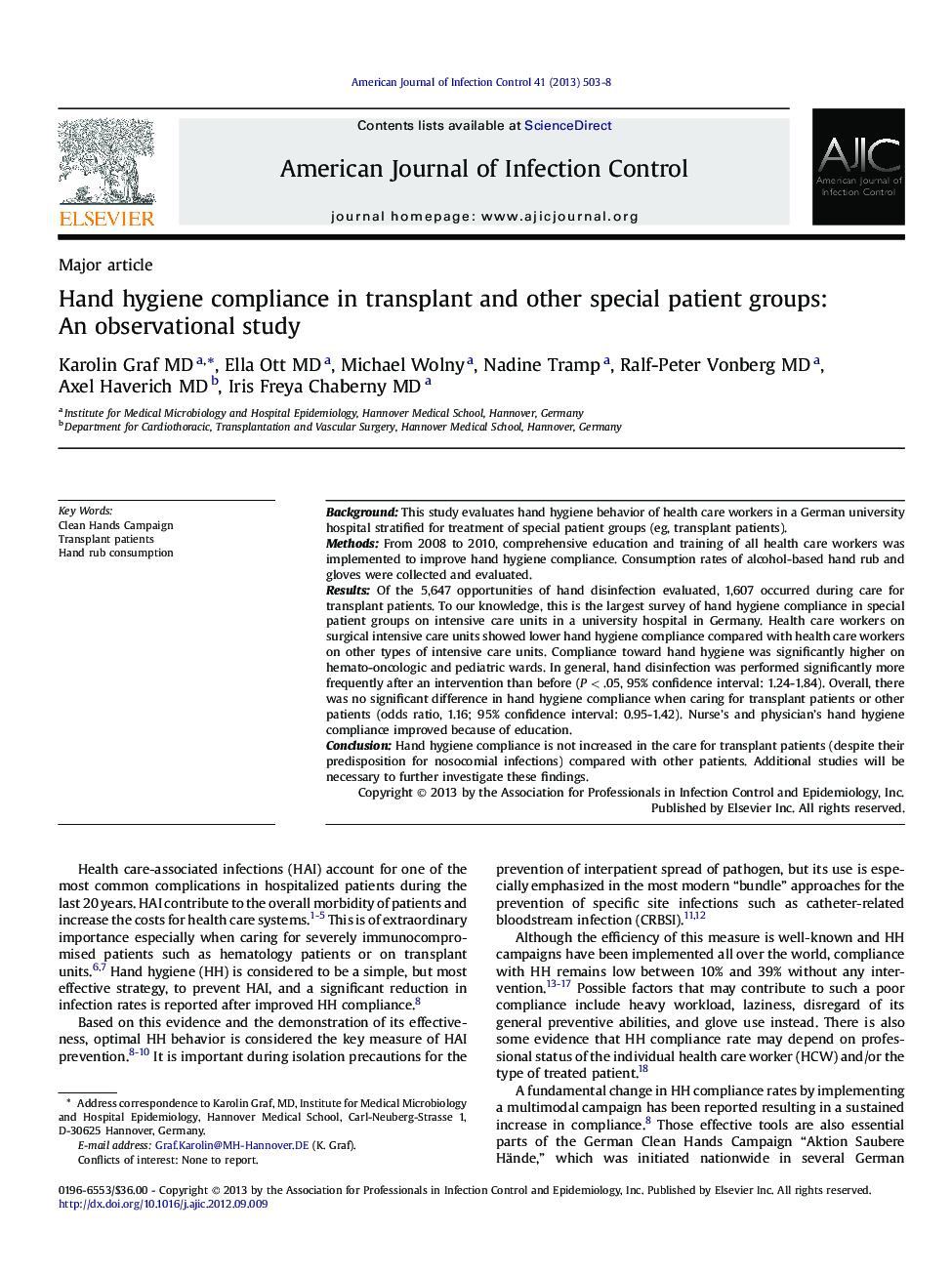| Article ID | Journal | Published Year | Pages | File Type |
|---|---|---|---|---|
| 2639826 | American Journal of Infection Control | 2013 | 6 Pages |
BackgroundThis study evaluates hand hygiene behavior of health care workers in a German university hospital stratified for treatment of special patient groups (eg, transplant patients).MethodsFrom 2008 to 2010, comprehensive education and training of all health care workers was implemented to improve hand hygiene compliance. Consumption rates of alcohol-based hand rub and gloves were collected and evaluated.ResultsOf the 5,647 opportunities of hand disinfection evaluated, 1,607 occurred during care for transplant patients. To our knowledge, this is the largest survey of hand hygiene compliance in special patient groups on intensive care units in a university hospital in Germany. Health care workers on surgical intensive care units showed lower hand hygiene compliance compared with health care workers on other types of intensive care units. Compliance toward hand hygiene was significantly higher on hemato-oncologic and pediatric wards. In general, hand disinfection was performed significantly more frequently after an intervention than before (P < .05, 95% confidence interval: 1.24-1.84). Overall, there was no significant difference in hand hygiene compliance when caring for transplant patients or other patients (odds ratio, 1.16; 95% confidence interval: 0.95-1.42). Nurse’s and physician’s hand hygiene compliance improved because of education.ConclusionHand hygiene compliance is not increased in the care for transplant patients (despite their predisposition for nosocomial infections) compared with other patients. Additional studies will be necessary to further investigate these findings.
